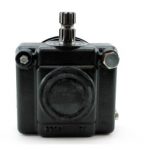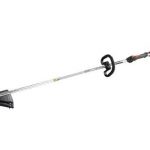LawnEQ is a trusted source for genuine OEM Parts- Shop for the part you need from your favorite manufacturers such as Landpride, Toro, Kubota, and more today on our OEM Parts Lookup Tool!
One question that is often asked by customers is “Is fuel treatment worth while, or necessary, for my equipment?” There is no short answer to that, and there is no blanket answer to that question either. Today, we’ll take a look at what types of fuel treatment are worthwhile, and in what cases fuel treatment is worth the added expense.
The Key to Quality Fuel Treatment
We can’t recommend one specific fuel treatment – many of them have similar properties, and many of them will work the same for your piece of small equipment, whether it is a mower, generator, snow blower, or another piece of small equipment. That being said, here are the most important properties to look for in fuel treatment:
- Corrosion Inhibition: Many fuel systems contain soft metals that, when they come in contact with even small amounts of water, will rust. The best fuel treatment will provide a high level of corrosion inhibition, protecting the soft metals from moisture that may work itself into the fuel system.
- Antioxidants: One of the major problems in fuel systems, particularly if your fuel is sitting for a while, is the oxidization of fuel, which creates clumping in the fuel system. This clumping can gum and clog the jets in fuel injection as well as a carburetor.
- Detergents: A lot of fuels contain small amounts of detergents, but having more detergents in the system is an advantage. These detergents help to clean out and keep the fuel lines, carburetors, needles, and intake valves clean.
- Lack of Alcohol: A lot of fuels from the pump already have plenty of alcohol in them – many of them are 10 percent alcohol or more. The last thing a fuel treatment should do is add more alcohol to the system.
Equipment Conditions
Certain pieces of equipment will benefit more from fuel treatment than others. It doesn’t depend so much on the type of equipment as it does on the storage conditions of equipment.
- Long Periods of Disuse: Fuel begins to deteriorate after roughly 30 days. If you are cycling fuel through the equipment in a shorter period of time, you won’t need to use fuel treatment.
- Good or Bad Fuel: If your equipment is being fueled by pure fuel without ethanol added, it has a better life and is less likely to need fuel treatment than a small engine that is being powered by E10 or E15 fuel.
- Usage: Obviously, an engine is going to need a little more help if it is being used more often. A small engine undergoing constant use and heavy use will need all of the help it can get.
Fuel treatment for your small engine can be useful in some cases, but in other cases, it can be a waste of your time and money. Compare your equipment and usage to what we’ve talked about today, and see if your equipment and available treatments work out together. Fuel treatments can be expensive, but if you have a piece of equipment that can use it, it will certainly be less expensive than a carburetor or engine rebuild.








2 thoughts on “Is Fuel Treatment Necessary?”
Comments are closed.